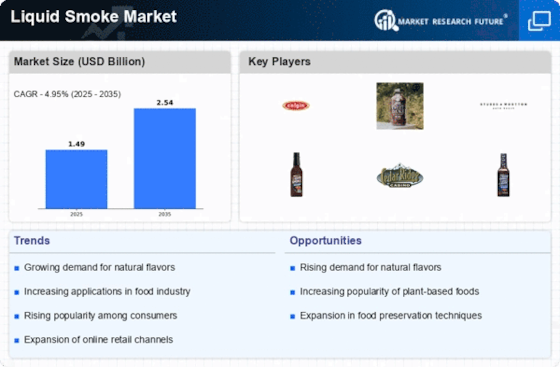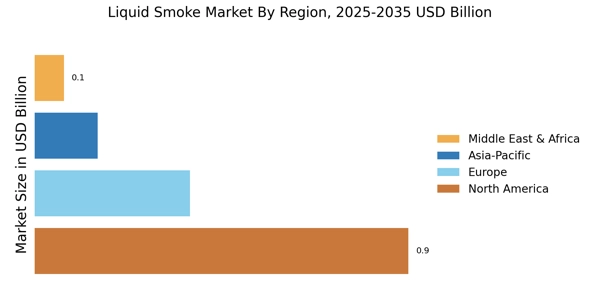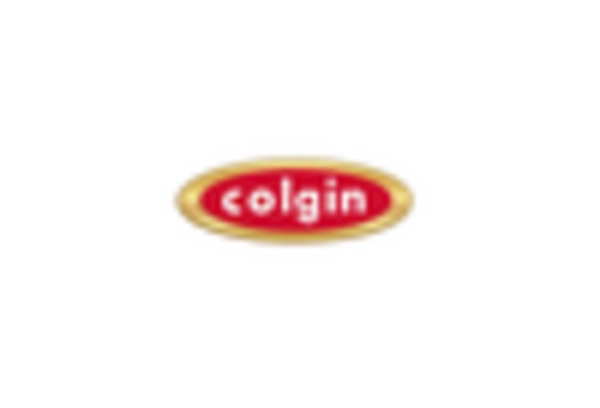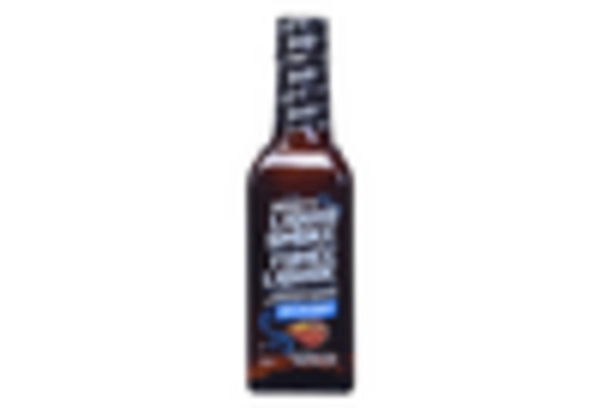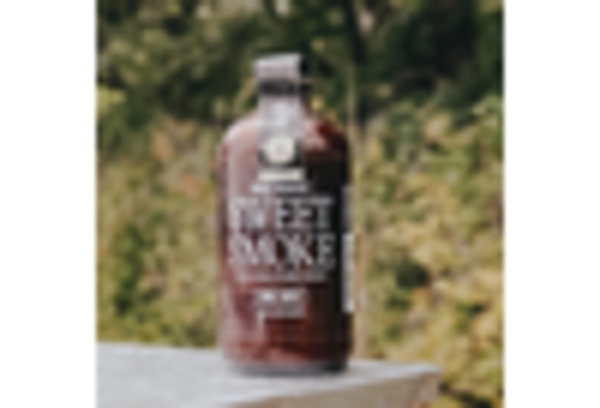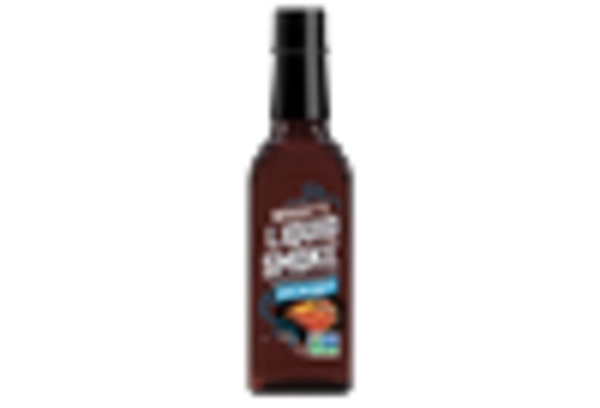Culinary Innovation
Culinary innovation is another driving force behind the Liquid Smoke Market. Chefs and home cooks alike are increasingly experimenting with flavors, seeking unique ways to enhance their dishes. Liquid smoke provides a convenient method to achieve a rich, smoky flavor without the lengthy process of traditional smoking. This versatility allows it to be used in a variety of cuisines, from barbecue sauces to marinades and even vegetarian dishes. Market data suggests that the rise in gourmet cooking and the popularity of food blogs and cooking shows have contributed to a heightened interest in liquid smoke. As culinary trends continue to evolve, the Liquid Smoke Market is likely to see an influx of new applications and product offerings, catering to the adventurous palate of modern consumers.
Grilling Popularity
The enduring popularity of grilling as a cooking method serves as a robust driver for the Liquid Smoke Market. As outdoor cooking becomes a staple in many households, the demand for products that enhance the grilling experience is on the rise. Liquid smoke offers a practical solution for those who wish to replicate the authentic smoky flavor associated with grilled foods, especially in regions where grilling is a cultural norm. Market analysis indicates that the sales of liquid smoke products have surged in tandem with the growth of grilling-related events and festivals. This trend suggests that the Liquid Smoke Market is well-positioned to capitalize on the increasing consumer interest in grilling, potentially leading to new product developments that cater specifically to this market segment.
Sustainability Trends
Sustainability trends are increasingly influencing consumer choices, and this is reflected in the Liquid Smoke Market. As consumers become more environmentally conscious, they are seeking products that align with their values. Liquid smoke, often produced from renewable resources, presents an appealing option for those looking to reduce their carbon footprint while enjoying flavorful foods. The market data indicates a growing segment of consumers who prioritize sustainability in their purchasing decisions, which could lead to increased demand for liquid smoke products that are marketed as eco-friendly. This trend suggests that the Liquid Smoke Market may need to adapt its strategies to highlight the sustainable aspects of its offerings, potentially attracting a new demographic of environmentally aware consumers.
Health-Conscious Choices
The increasing trend towards health-conscious eating habits appears to be a significant driver for the Liquid Smoke Market. Consumers are becoming more aware of the health implications of their food choices, leading to a preference for natural flavoring agents over artificial additives. Liquid smoke, derived from the condensation of smoke from burning wood, offers a way to impart a smoky flavor without the need for traditional smoking methods, which can introduce harmful compounds. This shift towards healthier alternatives is reflected in market data, indicating a steady growth in the demand for liquid smoke products, particularly among health-focused consumers. As the Liquid Smoke Market continues to evolve, manufacturers are likely to innovate and create new products that align with these health trends, potentially expanding their market reach.
Flavor Enhancement Demand
The demand for flavor enhancement in food products is a critical driver for the Liquid Smoke Market. As consumers seek to elevate their culinary experiences, the need for unique and robust flavors has become paramount. Liquid smoke serves as an effective flavor enhancer, providing a depth of taste that is difficult to achieve through conventional seasoning methods. Market data indicates that the flavor enhancement segment is experiencing significant growth, with liquid smoke being favored for its ability to impart a complex smoky flavor without additional calories or fat. This trend suggests that the Liquid Smoke Market is likely to see continued expansion as food manufacturers and home cooks alike embrace liquid smoke as a versatile ingredient in their flavor profiles.


